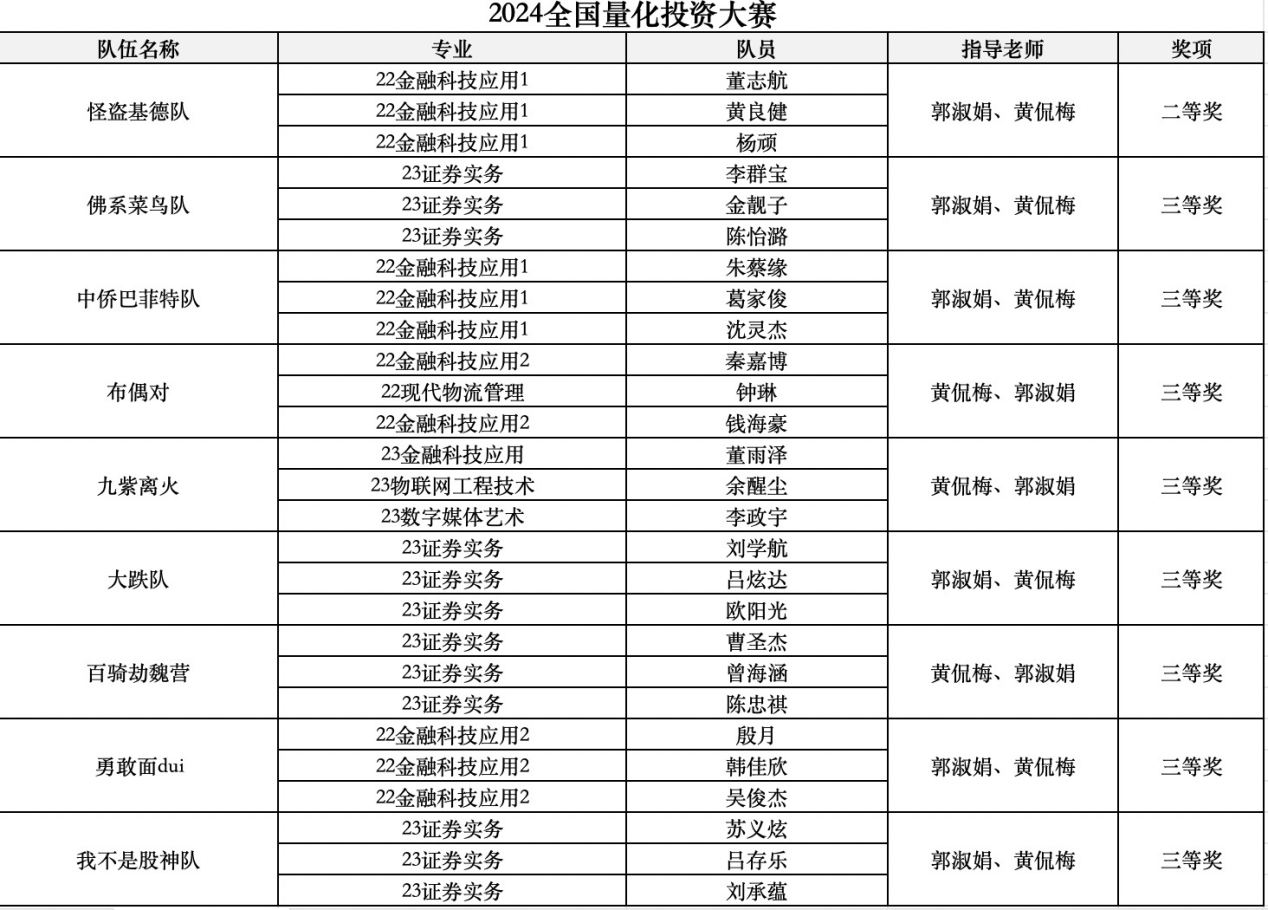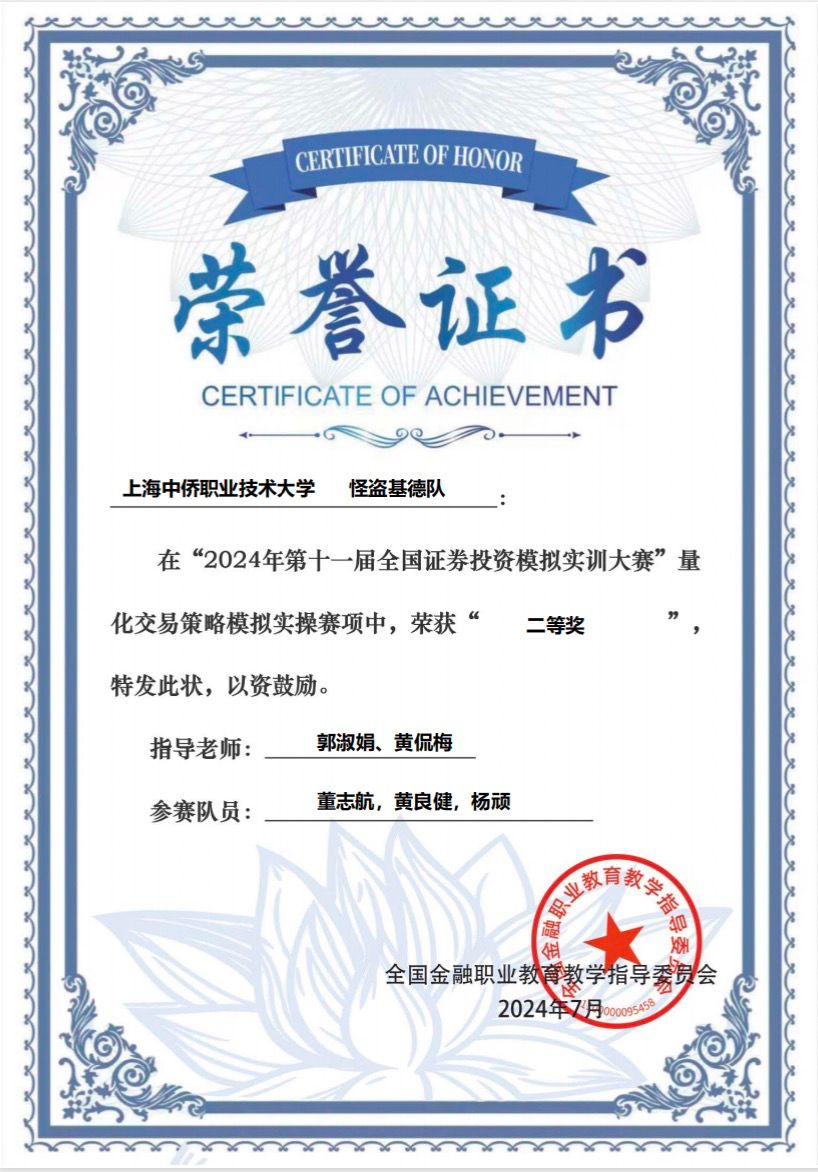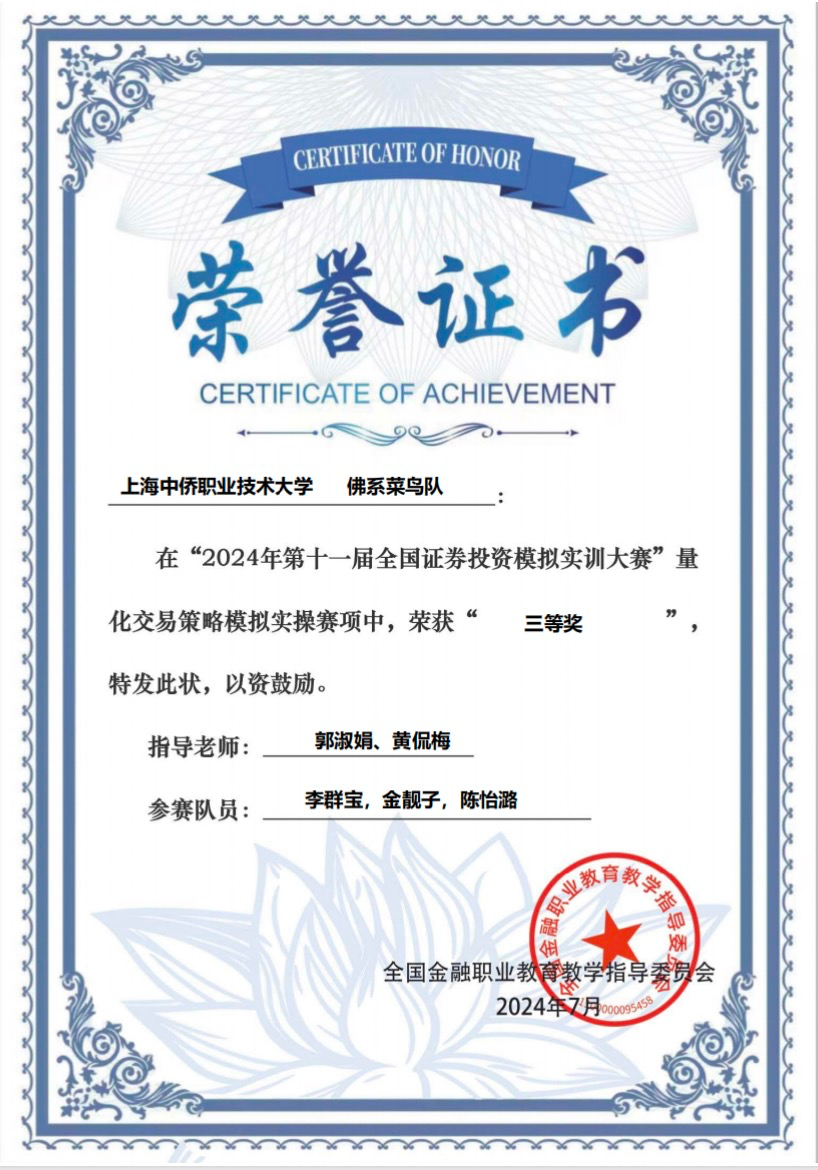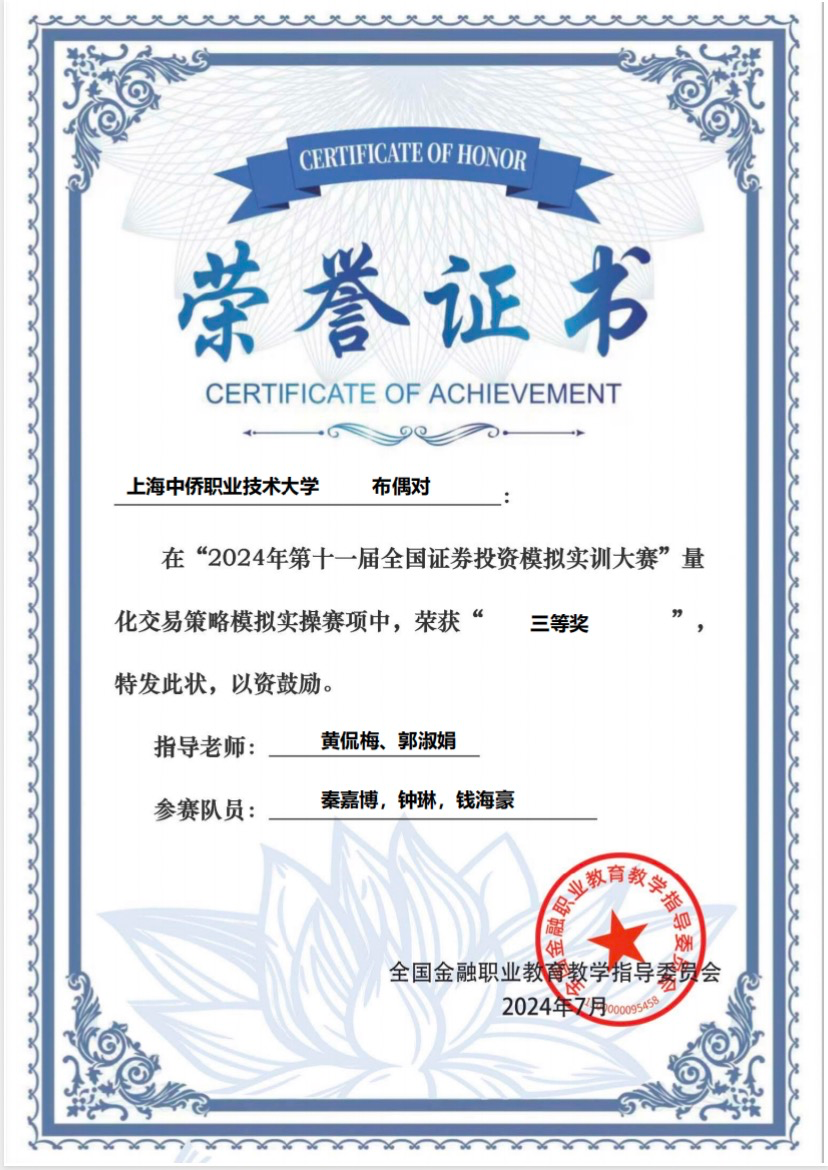On July 5, 2024, the National Quantitative Investment Competition came to an end. Under the expert guidance of teachers Huang Kanmei and Guo Shujuan from the School of Economics and Management, specializing in financial technology applications and securities practices, our school's teams, comprised of undergraduate majors in financial technology applications, modern logistics management, and securities practices, achieved outstanding results. They secured 1 second prize and 8 third prizes in the competition.
This competition is sponsored by the National Financial Vocational Education and Teaching Steering Committee. The national competition is a quantitative trading strategy simulation, and the investment categories are divided into stocks, exchange funds and convertible bonds. This competition is a team event. Each team needs to log in to the Flush Quantization Lab, configure a mock capital account with an initial capital of 10 million yuan, and develop quantitative investment strategies and conduct mock trading. Through data analysis to explore the market operation law, the use of mathematical models to evaluate the investment probability, and the use of historical data back test model fit and strategy effectiveness.
Quantitative trading is a way of trading that uses mathematical models to make investment decisions. It interprets and analyzes complex financial market data through mathematical models to achieve scientific and accurate investment decisions. In this process, computer programs play an important role, which can quickly catch market changes and provide investors with accurate investment signals. With the growth of market demand and the continuous progress of technology, quantitative trading, as an investment decision-making method using mathematical models, has realized a more rational and efficient transaction, and has shown greater potential in investment strategy optimization and risk management.
Through the related financial sub-markets such as stocks, funds, futures and science and technology finance, the quantitative trading team shows the spiritual core of vocational education in the practice. This competition is an important breakthrough in the quantitative trading competition of our school, which lays a solid foundation to continue to create good results in various competitions in the future and reserves talent resources. This is also an important step forward for the School of Economics and Management on the road of “financial + technology” integration, which is of great significance for professional digital transformation.




Edited by Guo Shujuan
Reviewd by Lin Danbei




